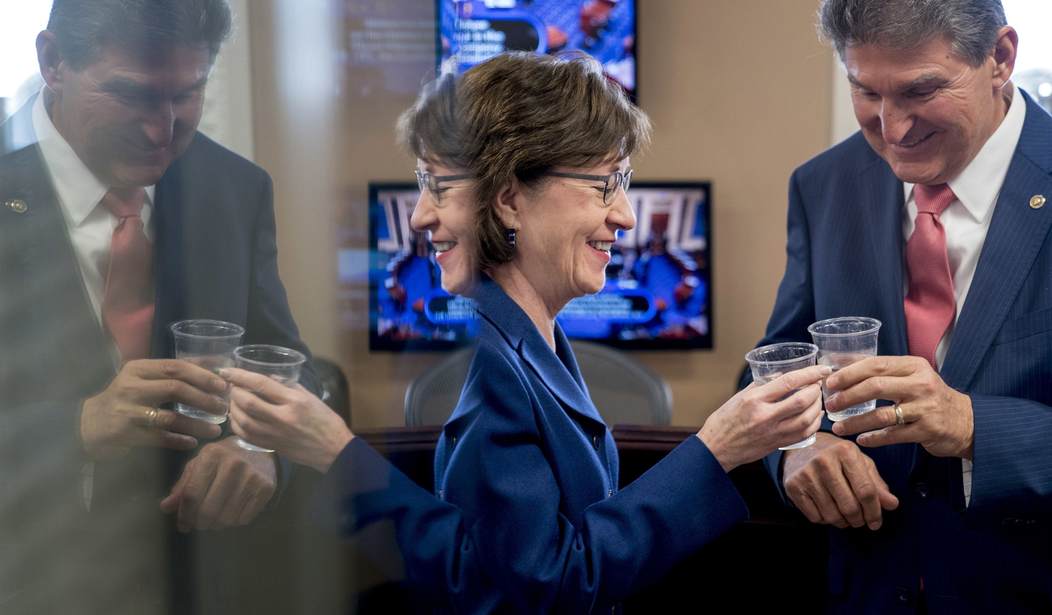The United States Senate is a clubby institution. It used to be that nary a word was spoken in anger or hate on the Senate floor. The thinking was that members belonged to “the greatest deliberative body in the world” — the nickname for the Senate in the old days — and that it was very bad form to sully the Senate’s reputation for decorum and calm debate by name-calling and other manifestations of partisanship.
The reality was always a lot different. There was no more vicious bunch of backstabbing, partisan, saboteurs who would sell out their own mothers for votes than United States senators. But the fiction was useful come election time.
There were exceptions to that rule. Illinois Democratic Senator Paul Simon was extremely well-liked by all sides as was Kansas Republican Bob Dole. It was members like Simon and Dole who actually made the Senate work, fashioning compromises on important legislation because they were trusted by both sides.
President Biden has made it clear he wants bipartisan agreement on his legislative agenda. At least, that’s the talking point. The truth is a lot more prosaic. For bipartisanship to flourish, there must be a modicum of trust between the two sides. Joe Biden’s toothy grin hides the fact that he knows damn well he won’t get anything done without the backing of the radicals. And the radicals would rather put their political opponents in jail or send them to reeducation camps than trust them with anything.
So are we doomed to a perpetual partisan hell as control of Congress sways back and forth between right and left every few years? For many on both sides, that would be a fine outcome. Sticking it to the commie libs or the right-wing terrorists is an end in and of itself. Side benefits include serving the people they were elected to represent and actually getting something done for the nation.
There is a small group of senators — perhaps no more than a dozen or so — who would like to flip the script and, at least on some legislation, create a consensus that would guide the legislation, steering it away from radicalism and partisan gimmicks. But for this group’s plan to work, they have to do something almost unheard of. They have to support colleagues for re-election who represent the other party.
West Virginia Democratic Senator Joe Manchin just endorsed Alaskan Republican Senator Lisa Murkowski for reelection. What some see as a betrayal, others see as a ray of hope for the future.
The two have a relationship dating back to essentially when Manchin entered the Senate in 2010 and Murkowski, then the top Republican on the Energy Committee visited Manchin in West Virginia. Then as chair, Murkowski hosted Manchin in Alaska in 2019 — cementing their rare bipartisan relationship.
Manchin, who also endorsed Sen. Susan Collins (R-Maine) in her 2020 reelection race, said that “I don’t think we should be campaigning against any colleagues, Democrat or Republican.”
Putting the Senate above politics? Say it ain’t so, Joe. But there’s no law against trying.
He conceded most of his colleagues don’t agree with him. But Murkowski hopes that with the establishment of a 20-senator strong bipartisan group, called the G20, their alliance is the start of something bigger rather than an outlier in an increasingly partisan chamber.
“I would like to think that we’re the resurgence, that it’s kind of lonely right now. But why wouldn’t we want to encourage greater collaboration and cooperation among our colleagues,” Murkowski. “I get weary of of of that energy that is focused on the dirty, unproductive process.”
Alaska is a place of truly independent voters and despite the venom being spit at her by Trump and his acolytes, she has a fighting chance in 2022. To be sure, overcoming the displeasure of the former president will not be an easy task — especially since the Republican establishment in the state is going to get behind a primary opponent with Trump’s blessing. But Murkowski has been fighting these wars for 20 years. In 2010, she became the first senator in 50 years to win on a write-in vote.
Manchin’s support won’t win her many votes and may lose her a few. But both senators are gambling that all the polls showing the American people truly want bipartisanship will translate into support at the ballot box.










Join the conversation as a VIP Member